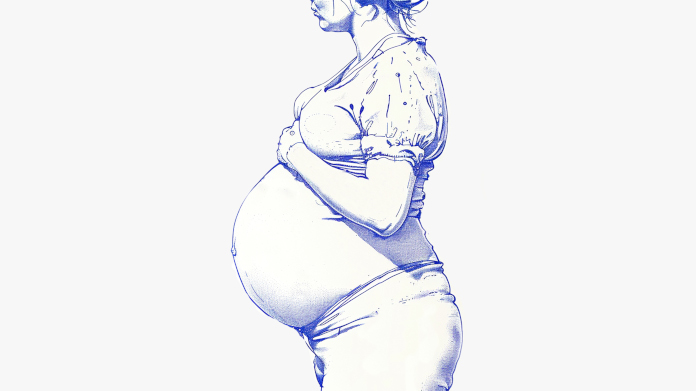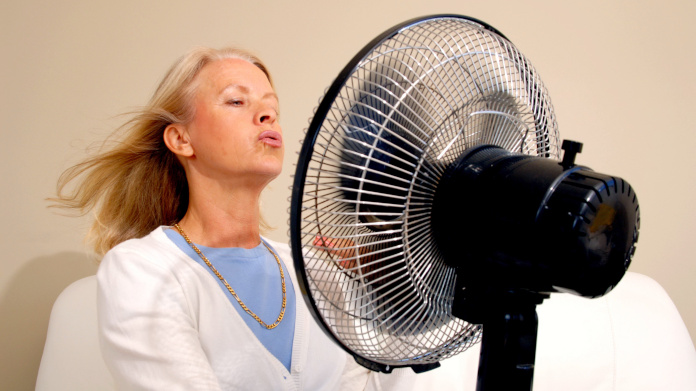Iodine supplements: why take them?
Even though we only need a tiny amount, iodine is essential for health. Discover in which instances it can help to take a supplement.

What exactly is iodine?
Assigned the symbol I and the atomic number 53 in the periodic table, iodine is a trace-element. Relatively rare in the natural environment, it’s found at low levels in seafood (1). It was actually first discovered in seaweed ash in 1811. Its name comes from the Greek iodes meaning ‘violet-colored’, reflecting the purple color of its vapour when heated.
What function does iodine fulfilll in the body?
Iodine plays a direct role in ensuring good thyroid function and normal production of two thyroid hormones: T3 (triiodothyronine) and T4 (thyroxin), which contain 3 and 4 iodine atoms respectively (2). It also supports normal energy metabolism and helps maintain healthy skin, as well as normal nervous system and cognitive function (3-5).
As a reminder, the thyroid is a small, butterfly-shaped gland located at the base of the throat which plays an essential role in maintaining vital functions in the body. Amongst others, it governs the heart rate, body temperature, growth, skin appearance, appetite, weight and mood (6).
What’s the recommended daily intake for iodine?
Since our bodies are unable to produce iodine, we have to obtain it from the diet to ensure our needs are met.
Official sources estimate adequate intakes to be 90 mcg/day for children, 130 mcg/day for adolescents, 150 mcg/for adults and 200 mcg/day for women who are pregnant or breastfeeding (7).
What risks are posed by iodine deficiency?
A lack of iodine impairs thyroid function. Chronic iodine deficiency can thus lead to the development of a goitre - an enlargement of the thyroid gland and/or the appearance of nodules (8).
In the case of proven deficiency, which is admittedly very rare, there’s a significant slowing down of thyroid function. This is called hypothyroidism (9) and it produces various symptoms, including weight gain, intense fatigue, constipation, pallid skin and attention problems (10).
However, despite it being essential for health, iodine should never be ingested at excessive levels as this can lead to malfunction of the thyroid gland (11). The European Union has thus set an upper safe limit of 600mcg/day, though it must be said the risk of ‘over-dosing’ is extremely low, especially since any surplus iodine is theoretically excreted via urine (12).
Which foods contain iodine?
In the 1950s, public authorities called for iodine to be added to salt in order to eradicate deficiency. This led to the creation of iodised table salt which became the primary source of dietary iodine across the world. However, we now know that a high-sodium diet increases the risk of cardiovascular problems and the WHO recommends we eat less than5g of salt a day, around half the average amount actually consumed (13).
In addition to iodised salt, iodine is found in seaweed (kombu, dulse, wakame), seafood, egg yolk and dairy products (14).
When should you consider supplementing with iodine?
In most cases, a sufficiently-varied diet with plenty of seafood and dairy products should be enough to cover our iodine needs. However, certain groups may be at higher risk of deficiency than others:
- vegetarians and vegans and non-seafood eaters (15);
- people on a low-salt diet;
- smokers, as tobacco inhibits iodine absorption (16);
- elite athletes, due to iodine loss via sweat (17);
- pregnant women, who have increased needs due to the developing fetus (18).
If you wish to take an iodine supplement, we’d suggest first consulting a health professional. They can carry out a blood or urine test to confirm your iodine status and thus evaluate whether supplementation is appropriate.
Which iodine supplement should you choose?
For those looking to reduce their salt intake, the best option is to supplement with Ascophyllum nodosum (try the product Natural Iodine) (19). Gathered off the coastlines of Western Scotland and Ireland, this seaweed has a sodium content 10 times lower than that of salt for the same amount of iodine.
Tablets based on potassium iodide - the product of a reaction between potassium hydroxide and iodine - offer unbeatable stability and exceptional bioavailability, assessed at 96.4% (20). Potassium iodide is the form used for cooking salt, as well as for the iodine pills given to populations following nuclear accidents (to saturate the thyroid and prevent uptake of radioactive iodine, which causes serious damage to the thyroid) (21). However, be sure to choose a safe formulation with a moderate dose (such as Potassium Iodide, which contains 200mcg of iodine per tablet).
Certain cutting-edge formulations combine iodine with various thyroid-beneficial compounds (the synergistic supplement Natural Thyro Formula combines iodine from kelp with selenium, which supports normal thyroid function, and extract of guggul, which also helps to maintain thyroid health) (22-23).
Last but not least, multivitamin supplements, which incorporate smaller amounts of iodine, are more suitable for daily use (revised in 2019, the exceptional formulation Daily 3 contains no less than 42 carefully-selected, natural-source ingredients including 50mcg of iodine per capsule).
SuperSmart ADVICE
##TPL_ARTICLES:0751,0818,0513,0578#References
- Zimmermann M, Trumbo PR. Iodine. Adv Nutr. 2013 Mar 1;4(2):262-4. doi: 10.3945/an.113.003665. PMID: 23493543; PMCID: PMC3649107.
- Chung HR. Iodine and thyroid function. Ann Pediatr Endocrinol Metab. 2014 Mar;19(1):8-12. doi: 10.6065/apem.2014.19.1.8. Epub 2014 Mar 31. PMID: 24926457; PMCID: PMC4049553.
- Zbigniew S. Role of Iodine in Metabolism. Recent Pat Endocr Metab Immune Drug Discov. 2017;10(2):123-126. doi: 10.2174/1872214811666170119110618. PMID: 28103777.
- Costa RO, Macedo PM, Carvalhal A, Bernardes-Engemann AR. Use of potassium iodide in dermatology: updates on an old drug. An Bras Dermatol. 2013 May-Jun;88(3):396-402. doi: 10.1590/abd1806-4841.20132377. PMID: 23793210; PMCID: PMC3754371.
- Redman K, Ruffman T, Fitzgerald P, Skeaff S. Iodine Deficiency and the Brain: Effects and Mechanisms. Crit Rev Food Sci Nutr. 2016 Dec 9;56(16):2695-713. doi: 10.1080/10408398.2014.922042. PMID: 25880137.
- Armstrong M, Asuka E, Fingeret A. Physiology, Thyroid Function. [Updated 2022 Mar 18]. In: StatPearls [Internet]. Treasure Island (FL): StatPearls Publishing; 2022 Jan-. Available from: https://www.ncbi.nlm.nih.gov/books/NBK537039/
- Ahad F, Ganie SA. Iodine, Iodine metabolism and Iodine deficiency disorders revisited. Indian J Endocrinol Metab. 2010 Jan;14(1):13-7. PMID: 21448409; PMCID: PMC3063534.
- Can AS, Rehman A. Goiter. [Updated 2022 Aug 22]. In: StatPearls [Internet]. Treasure Island (FL): StatPearls Publishing; 2022 Jan-. Available from: https://www.ncbi.nlm.nih.gov/books/NBK562161/
- Zimmermann MB, Boelaert K. Iodine deficiency and thyroid disorders. Lancet Diabetes Endocrinol. 2015 Apr;3(4):286-95. doi: 10.1016/S2213-8587(14)70225-6. Epub 2015 Jan 13. PMID: 25591468.
- Patil N, Rehman A, Jialal I. Hypothyroidism. [Updated 2022 Aug 8]. In: StatPearls [Internet]. Treasure Island (FL): StatPearls Publishing; 2022 Jan-. Available from: https://www.ncbi.nlm.nih.gov/books/NBK519536/
- Southern AP, Jwayyed S. Iodine Toxicity. [Updated 2022 Oct 10]. In: StatPearls [Internet]. Treasure Island (FL): StatPearls Publishing; 2022 Jan-. Available from: https://www.ncbi.nlm.nih.gov/books/NBK560770/
- Pearce EN, Caldwell KL. Urinary iodine, thyroid function, and thyroglobulin as biomarkers of iodine status. Am J Clin Nutr. 2016 Sep;104 Suppl 3(Suppl 3):898S-901S. doi: 10.3945/ajcn.115.110395. Epub 2016 Aug 17. PMID: 27534636; PMCID: PMC5004493.
- Wang YJ, Yeh TL, Shih MC, Tu YK, Chien KL. Dietary Sodium Intake and Risk of Cardiovascular Disease: A Systematic Review and Dose-Response Meta-Analysis. 2020 Sep 25;12(10):2934. doi: 10.3390/nu12102934. PMID: 32992705; PMCID: PMC7601012.
- Pehrsson PR, Patterson KY, Spungen JH, Wirtz MS, Andrews KW, Dwyer JT, Swanson CA. Iodine in food- and dietary supplement-composition databases. Am J Clin Nutr. 2016 Sep;104 Suppl 3(Suppl 3):868S-76S. doi: 10.3945/ajcn.115.110064. Epub 2016 Aug 17. PMID: 27534627; PMCID: PMC5004500.MC7601012.
- Krajcovicová-Kudlácková M, Bucková K, Klimes I, Seboková E. Iodine deficiency in vegetarians and vegans. Ann Nutr Metab. 2003;47(5):183-5. doi: 10.1159/000070483. PMID: 12748410.
- Cho NH, Choi HS, Kim KW, Kim HL, Lee SY, Choi SH, Lim S, Park YJ, Park DJ, Jang HC, Cho BY. Interaction between cigarette smoking and iodine intake and their impact on thyroid function. Clin Endocrinol (Oxf). 2010 Aug;73(2):264-70. doi: 10.1111/j.1365-2265.2010.03790.x. Epub 2010 Jan 23. PMID: 20105185.
- Smyth PP, Duntas LH. Iodine uptake and loss-can frequent strenuous exercise induce iodine deficiency? Horm Metab Res. 2005 Sep;37(9):555-8. doi: 10.1055/s-2005-870423. PMID: 16175493.
- Skeaff SA. Iodine deficiency in pregnancy: the effect on neurodevelopment in the child. 2011 Feb;3(2):265-73. doi: 10.3390/nu3020265. Epub 2011 Feb 18. PMID: 22254096; PMCID: PMC3257674.
- Hrólfsdóttir AÞ, Arason S, Sveinsdóttir HI, Gudjónsdóttir M. Added Value of Ascophyllum nodosum Side Stream Utilization during Seaweed Meal Processing. Mar Drugs. 2022 May 24;20(6):340. doi: 10.3390/md20060340. PMID: 35736143; PMCID: PMC9229640.
- Aquaron R, Delange F, Marchal P, Lognoné V, Ninane L. Bioavailability of seaweed iodine in human beings. Cell Mol Biol (Noisy-le-grand). 2002 Jul;48(5):563-9. PMID: 12146713.
- Torti JF, Correa R. Potassium Iodide. [Updated 2022 May 22]. In: StatPearls [Internet]. Treasure Island (FL): StatPearls Publishing; 2022 Jan-. Available from: https://www.ncbi.nlm.nih.gov/books/NBK542320/
- Gorini F, Sabatino L, Pingitore A, Vassalle C. Selenium: An Element of Life Essential for Thyroid Function. 2021 Nov 23;26(23):7084. doi: 10.3390/molecules26237084. PMID: 34885664; PMCID: PMC8658851.
- Panda S, Kar A. Guggulu (Commiphora mukul) potentially ameliorates hypothyroidism in female mice. Phytother Res. 2005 Jan;19(1):78-80. doi: 10.1002/ptr.1602. PMID: 15798994.
Keywords
2 Days
repeat customer
recommended by my doctor. easy to create an account. Discounts and specials are appreciated. packaging and delivery is dependable. Capsules easy to digest. I've had some some capsules and tablets that are broken inside their bottles.
Kokee
7 Days
Order was shipped on time and packaged…Wonderful Jobs!
Order was shipped on time and packaged excellently.
DMHoge
13 Days
great products and prices
great products and prices
Marie
19 Days
Easy to navigate site
Easy to navigate site, had what I was searching for, good price. easy order-check out
James Tucker
25 Days
My skin is clearing up nicely!
Pretty good for my skin so far.
Christian
27 Days
The new packaging is excellent
The new packaging is excellent - finally! No more squashed boxes and torn envelopes.
GORAN
28 Days
Great Product
Great Product
Larry Garrett
33 Days
Quick shipping
Quick shipping; good price. No issues!
Mary McCarty
34 Days
Thr product is very good and is helping…
Thr product is very good and is helping me on my health. Then is always on time
LUGO Luz
37 Days
Buying was fine
Buying was fine. I had problems with the website not recognizing my login info, and had to call to get it fixed. Other than that, everything was good.
David S. Clark
37 Days
Your super maca and super ginseng are…phenomenal
Your super maca and super ginseng are phenomenal supplements that compliment each other when taking them together. Fantastic feeling of well-being and lots of mid day energy without the crash.
Keith Mason
39 Days
I have had amazing results with every…
I have had amazing results with every supplement I've purchased. I am extremely satisfied with this company
kirstin Torres
40 Days
Fine products
Fine products . They are on the leading edge of online supplements. The only issue -so far-is they sometime run out of subscription items.
Jason Argos
42 Days
The ordering process is very user…
The ordering process is very user friendly and the products always come in a timely manner.
CARTER Rhonda
43 Days
The price for Dr
The price for Dr. Pero's AC-11 is reasonable and in line with his views. (my former colleague). Keep it pure.
CAMPBELL Clayton




